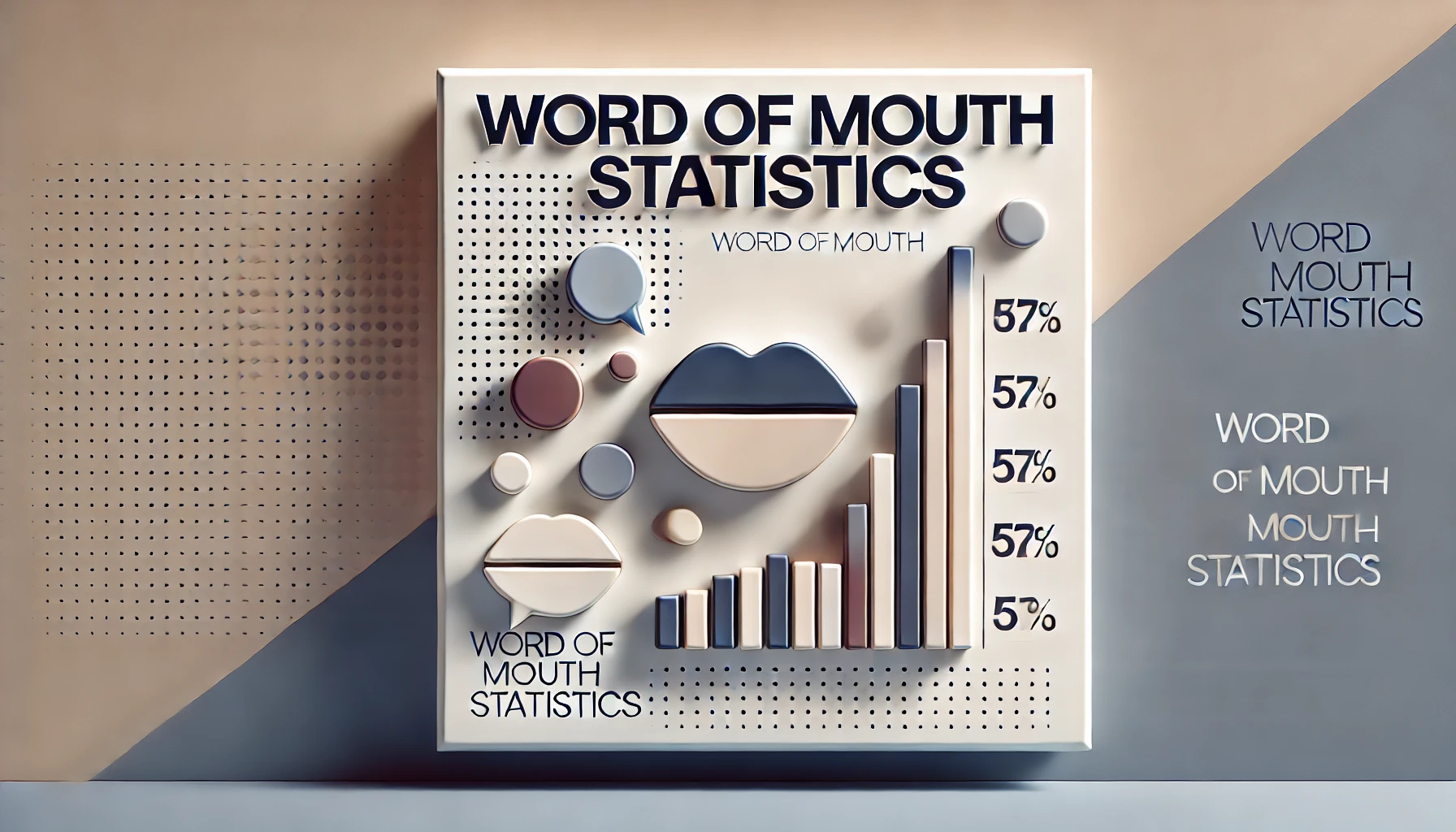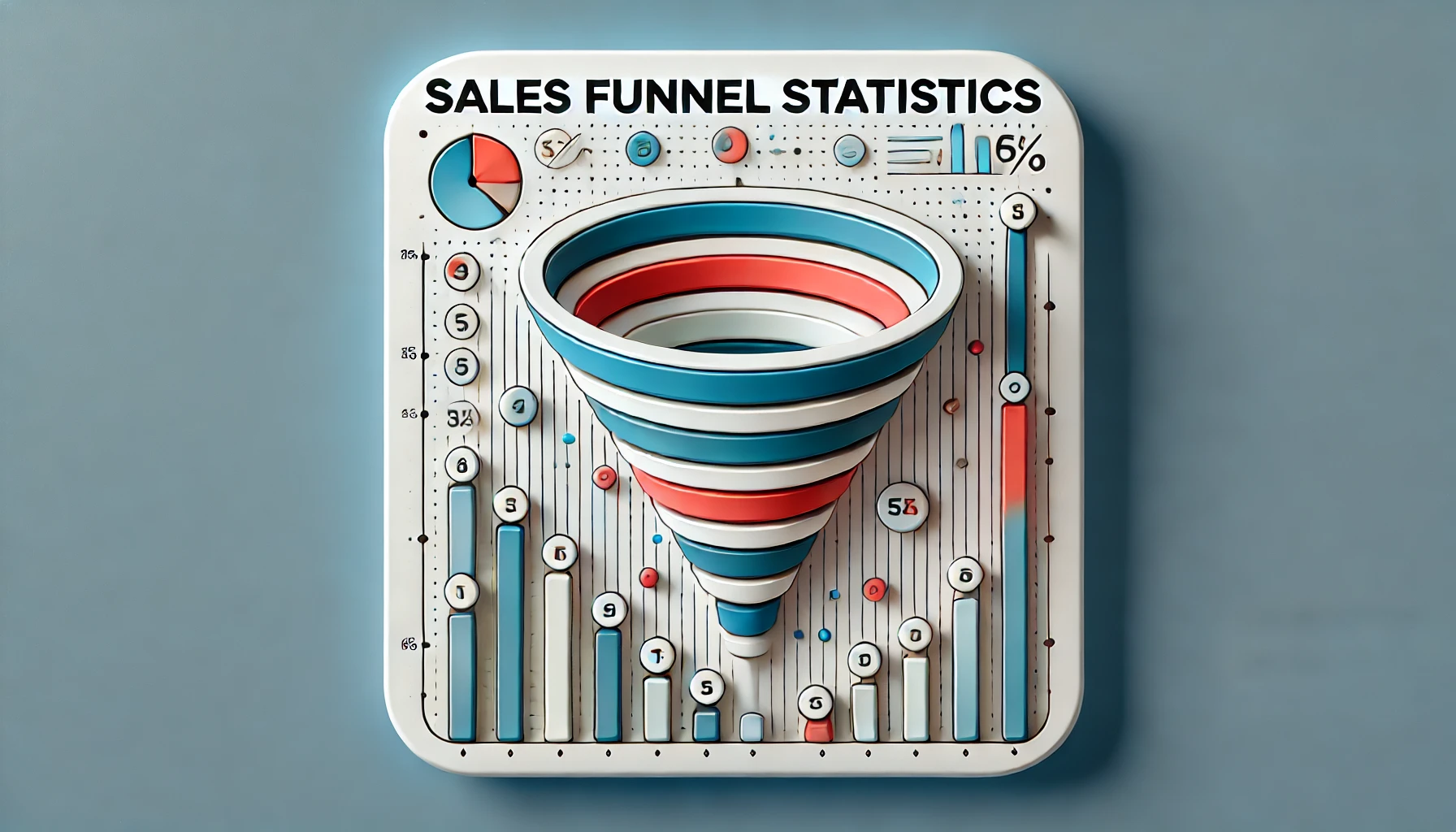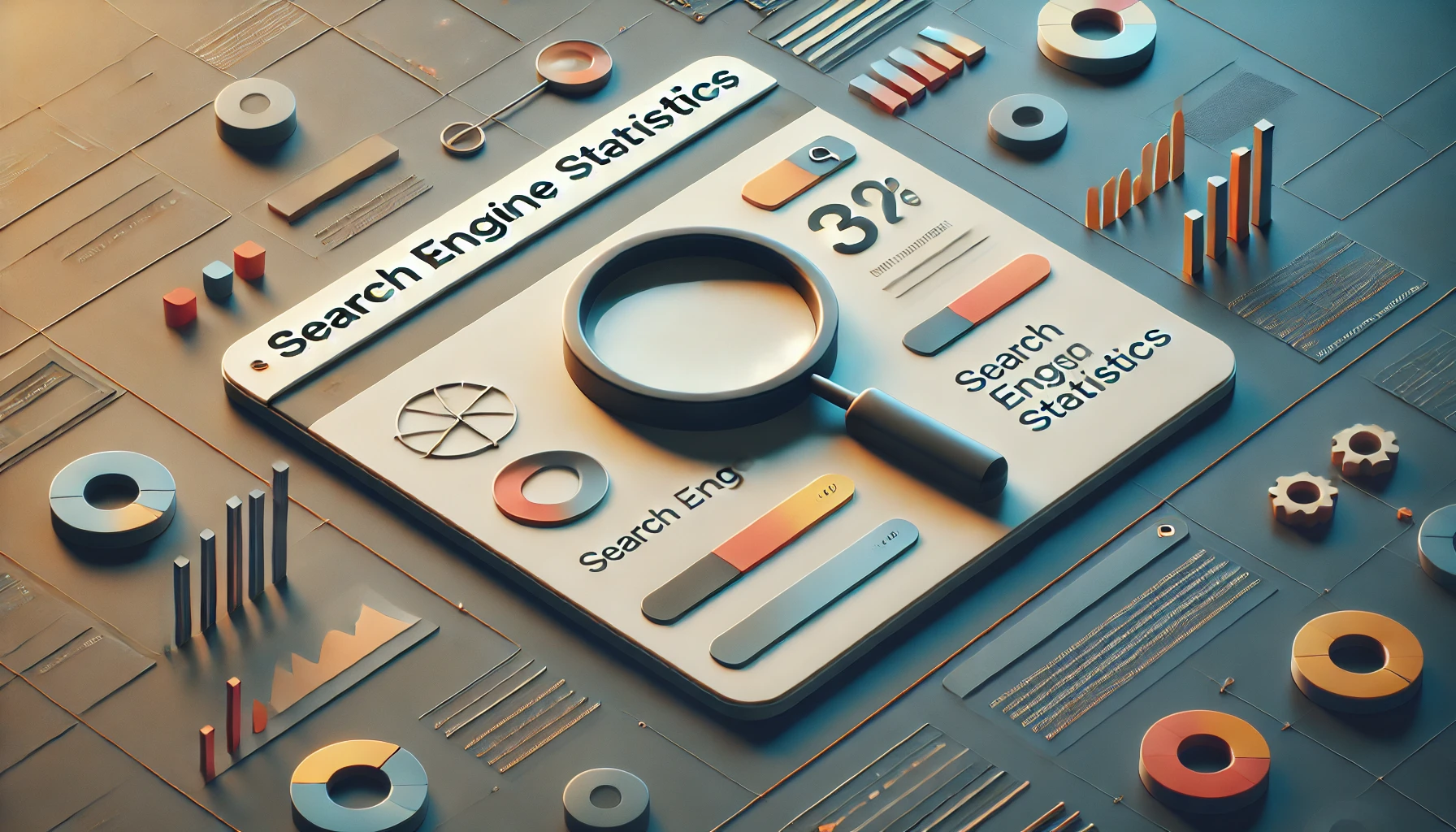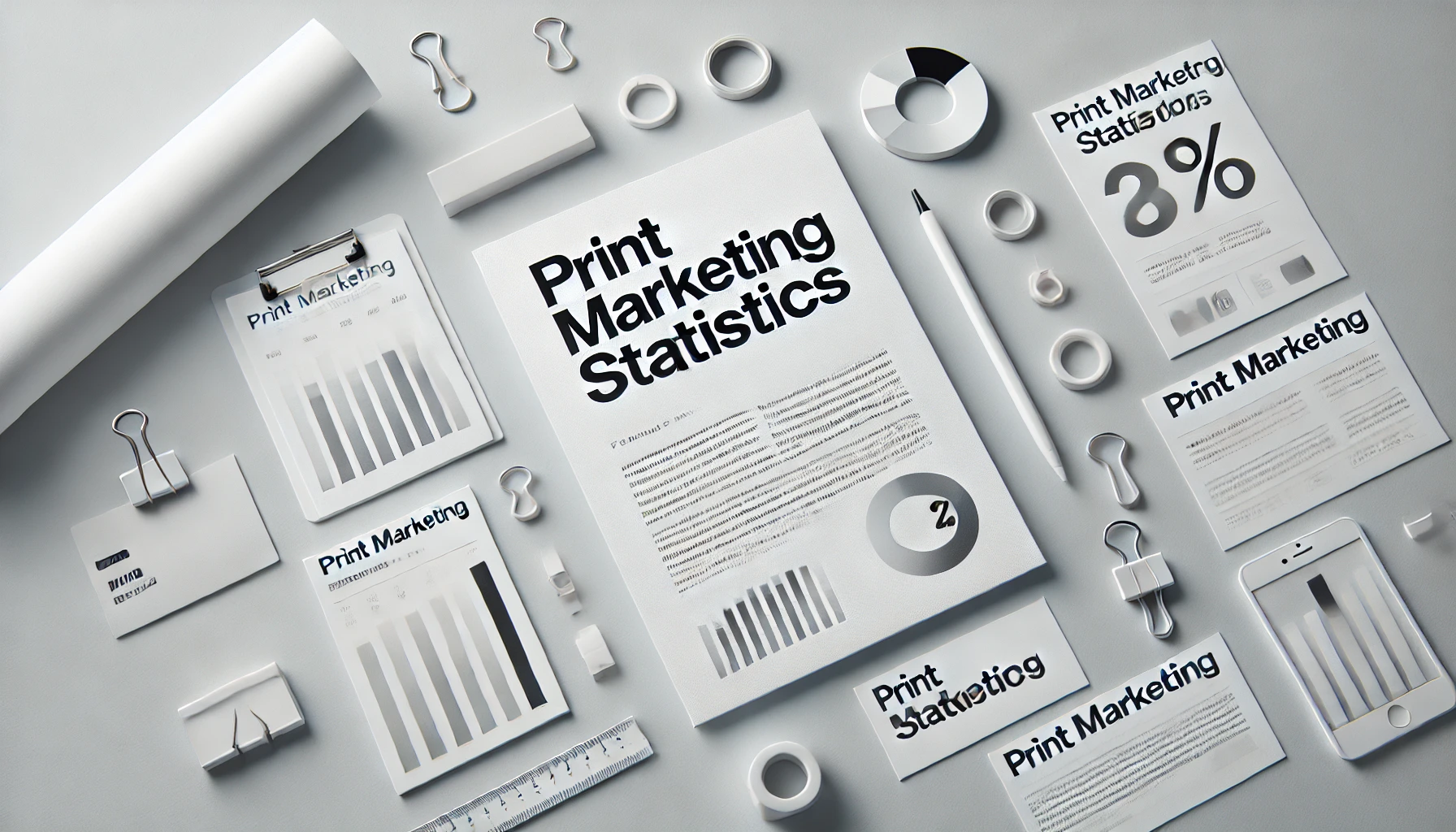Online Privacy Statistics By Business, legislation, Compliance, Artificial Intelligence, Influential And Recent Privacy Laws
Updated · Oct 14, 2024
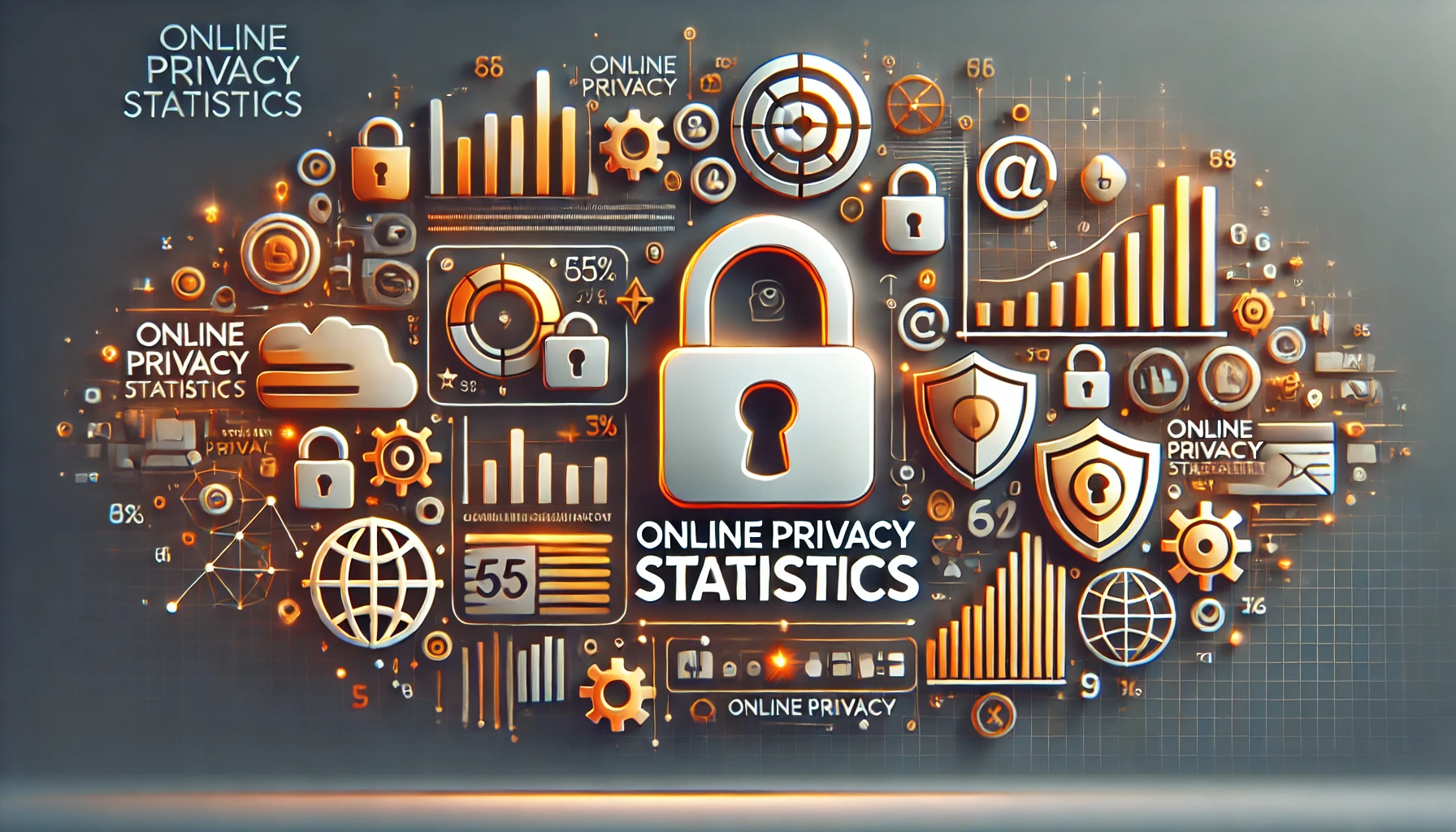
WHAT WE HAVE ON THIS PAGE
- Introduction
- Editor’s Choice
- General Online Privacy Statistics
- Business Related Data Privacy Statistics
- Data Privacy Goals And Statistics
- Data Privacy Legislation And Compliance Statistics
- Data Privacy And Artificial Intelligence Statistics
- Steps Undertaken By Global Internet Users For Online Privacy
- Influential And Recent Privacy Laws
- Conclusion
Introduction
Online Privacy Statistics: We use many websites and online services every day, so it’s normal to feel worried about how our data is handled. Whether it’s personal information or data from work and school, there are real concerns about what could happen if it gets into the wrong hands. These worries have grown as technology has advanced. In 2024, data privacy will be very different from before, and it will continue to change.
Factors like artificial intelligence (AI) and a more connected business world are creating new challenges for companies trying to follow data privacy rules. Below, we’ve gathered some important Online Privacy Statistics that everyone should know. These numbers highlight how data privacy affects businesses and users, with updated information from 2024 and recent years to give a clear picture of today’s situation.
Editor’s Choice
- 94% of organizations believe their customers would only purchase from them if they properly protected data.
- 86% of people in the U.S. say that data privacy is a growing concern for them.
- 72% of Americans think there should be more government rules about how personal data can be used.
- Only 29% of consumers find it easy to understand how well a company protects their personal information.
- Online Privacy Statistics stated that almost 48% of organizations are putting private company information into Generative AI applications.
- Only 20% of privacy experts say they are completely confident in their organization’s compliance with privacy laws.
- The average cost to manually handle a single data request is $1,524.
- Large organizations are expected to spend over $2.5 million on privacy each year by the end of 2024.
- 95% of organizations believe that the benefits of investing in data privacy outweigh the costs, with the average organization seeing a 1.6x return on their privacy investment.
- Additionally, 30% of organizations estimate a 2x return on their data privacy spending.
General Online Privacy Statistics
- 9 out of 10 people in the U.S. think online privacy is important.
- Most Americans care about their privacy, with 75% feeling at risk of cyberattacks.
- However, there’s a gap between knowing the risks and taking action—only 64% use tools to protect their privacy, and just 56% feel in control of their data.
- Here are some important statistics about data privacy:
- 1% of businesses would prioritize data privacy if they knew it would boost customer trust and loyalty.
- Nearly 62% of Americans believe it’s impossible to go through daily life without companies collecting data about them.
- 81% of users feel that the risks from companies collecting their data are greater than the benefits.
- 63% of internet users think most companies need clarification about how they use their data, and 48% have stopped shopping with a company due to privacy worries.
- Online Privacy Statistics stated that roughly 81% of users believe that a company’s handling of their data reflects how the company views them as customers.
- 37% of users have cut ties with companies over data issues, up from 34% just two years ago.
- A study from the University of Maryland found that computers connected to the internet face a hacker attack approximately every 39 seconds.
- More than 120 countries have implemented some form of international data protection law to protect their citizens and their data better.
- 85% of adults around the world want to do more to protect their online privacy.
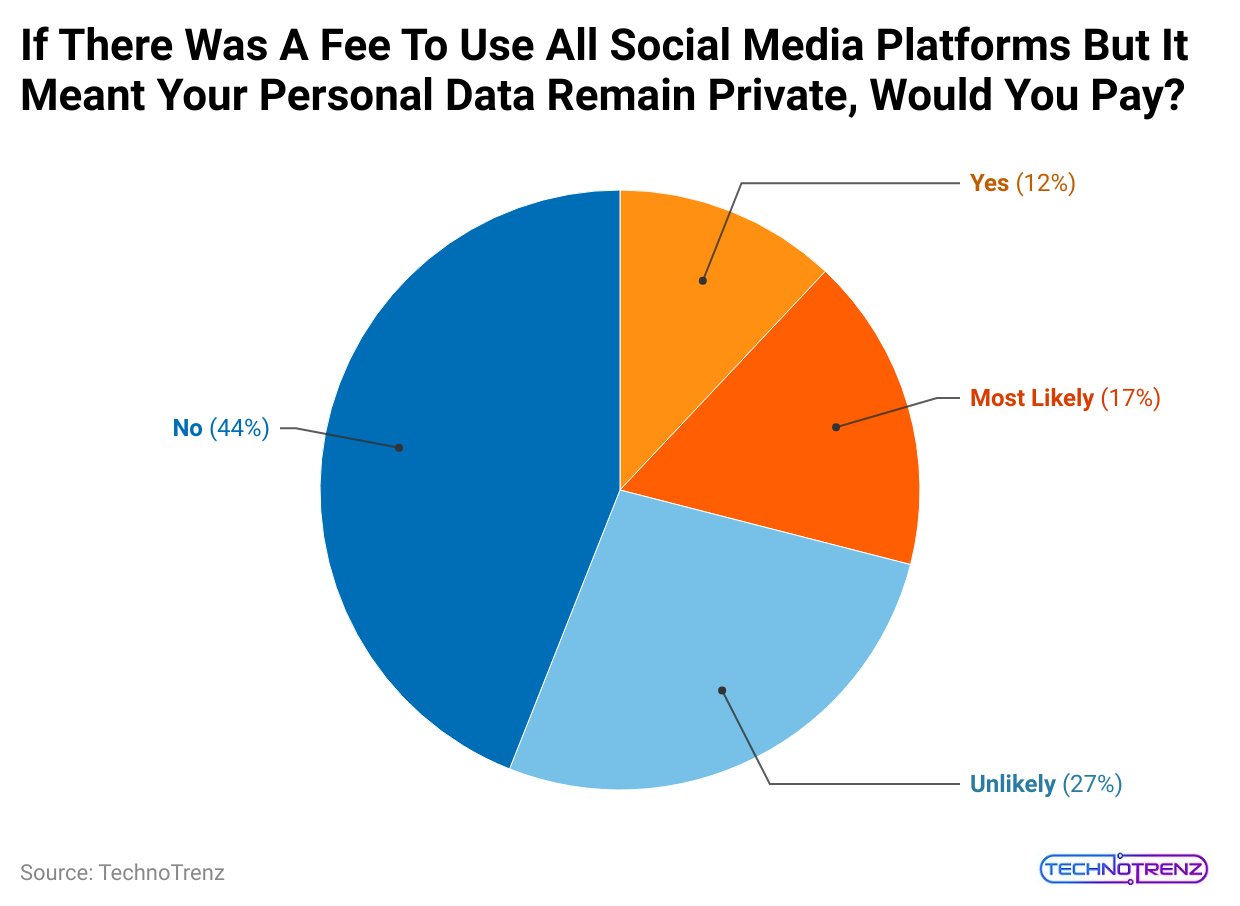 (Reference: pandasecurity.com)
(Reference: pandasecurity.com)
- In a survey of 10,000 adults from 10 countries in 2022, most wanted to improve their privacy, but it’s challenging:
#1. 80% are worried about their privacy.
#2. 69% are more concerned than before.
#3. 61% say they often give up privacy for convenience.
#4. 55% think it’s impossible to protect their privacy fully.
#5. 51% don’t know how to safeguard their privacy.
- 7 in 10 adults globally have taken steps to boost their online privacy (Norton). Here are some actions they’ve taken:
#1. 29% changed the default privacy settings on their devices.
#2. 26% turned on multi-factor authentication for some accounts.
#3. 26% disabled third-party cookies in their browsers.
#4. 16% used a VPN.
- Many Americans believe it’s impossible to avoid having their data collected by companies and the government.
- A Pew Research survey found that 62% think it’s unavoidable for companies, and 63% feel the same about the government.
- This causes stress, as 79% are worried about how companies use their data, and 64% are concerned about government use.
- 1 in 4 Americans is asked to agree to a privacy policy every day.
- Many find these policies overwhelming: 25% encounter them daily, 57% weekly, and 81% monthly. Only 22% read these policies in full.
- The most common tools people use for online privacy are antivirus software, ad blockers, and password managers.
- About 60% of internet users use antivirus software, while 39% use ad blockers and 36% use password managers.
- Fewer than 20% use other privacy tools, such as encrypted email (17%), encrypted messaging apps (15%), or paid VPN services (14%).
Business Related Data Privacy Statistics
These statistics show how crucial data privacy is for building trust with customers. Companies must be open about their data practices to earn and maintain this trust:
- 1% of businesses believe they can collect data for marketing while still respecting customer privacy.
- 79% of Americans are concerned about how companies use their data.
- For 88% of users, whether they share personal information depends on how much they trust a company.
- Almost 54% of users feel it’s more challenging for companies to gain their trust now.
- Nearly 63% of users think most companies need to be clearer about how they use their data.
- 75% of Americans believe there should be stricter rules to protect their privacy from companies that collect data without permission.
- Around 60% of users say they would spend more money on brands they trust to handle their data responsibly.
- 84% of users are more loyal to companies that have strong security measures.
- Nearly 46% of customers feel they have lost control over their data.
- 87% of users want to control how their personal information is used.
- Online Privacy Statistics stated that around 37% of users feel less anxious when companies are open about how they collect and use data.
- 52% of American users have chosen not to use a product or service because they were worried about data collection.
- 48% of users have stopped buying from a company due to privacy concerns.
- 33% of users have cut ties with companies, including social media, ISPs, retailers, and banks, over data issues.
- 77% of consumers are willing to share their email addresses for personalized experiences and offers.
- Most companies see a good return on their privacy investments, with over 40% reporting benefits that are at least double what they spend on privacy.
- According to Smith, “Trust is crucial in this ‘Age of Information,’ where customer data can be shared without their knowledge or consent.”
- He suggests that one way companies can build trust is by making data privacy a priority in their products and services.
- A simple first step is to explain clearly how they will use customers’ data.
- Taking these actions now can lead to better customer success in the future—78.1% of businesses reported no negative impact from privacy requirements.
 (Reference: termly.io)
(Reference: termly.io)
- This could be why 94.1% of businesses think it’s possible to find a balance between using data for marketing and protecting consumer privacy rights, as shown in the chart below.
 (Reference: termly.io)
(Reference: termly.io)
- Compliance tools like our Privacy Policy Generator and Consent Management Platform (CMP) help businesses of all sizes achieve this balance more easily.
Data Privacy Goals And Statistics
- 30% of professionals believe that compliance is the most important factor for gaining and building consumer trust.
- When security experts were asked about their main responsibilities, they mentioned:
#1. Risk assessment and management (44%)
#2. CISO or security leadership (35%)
#3. Data privacy and governance (33%)
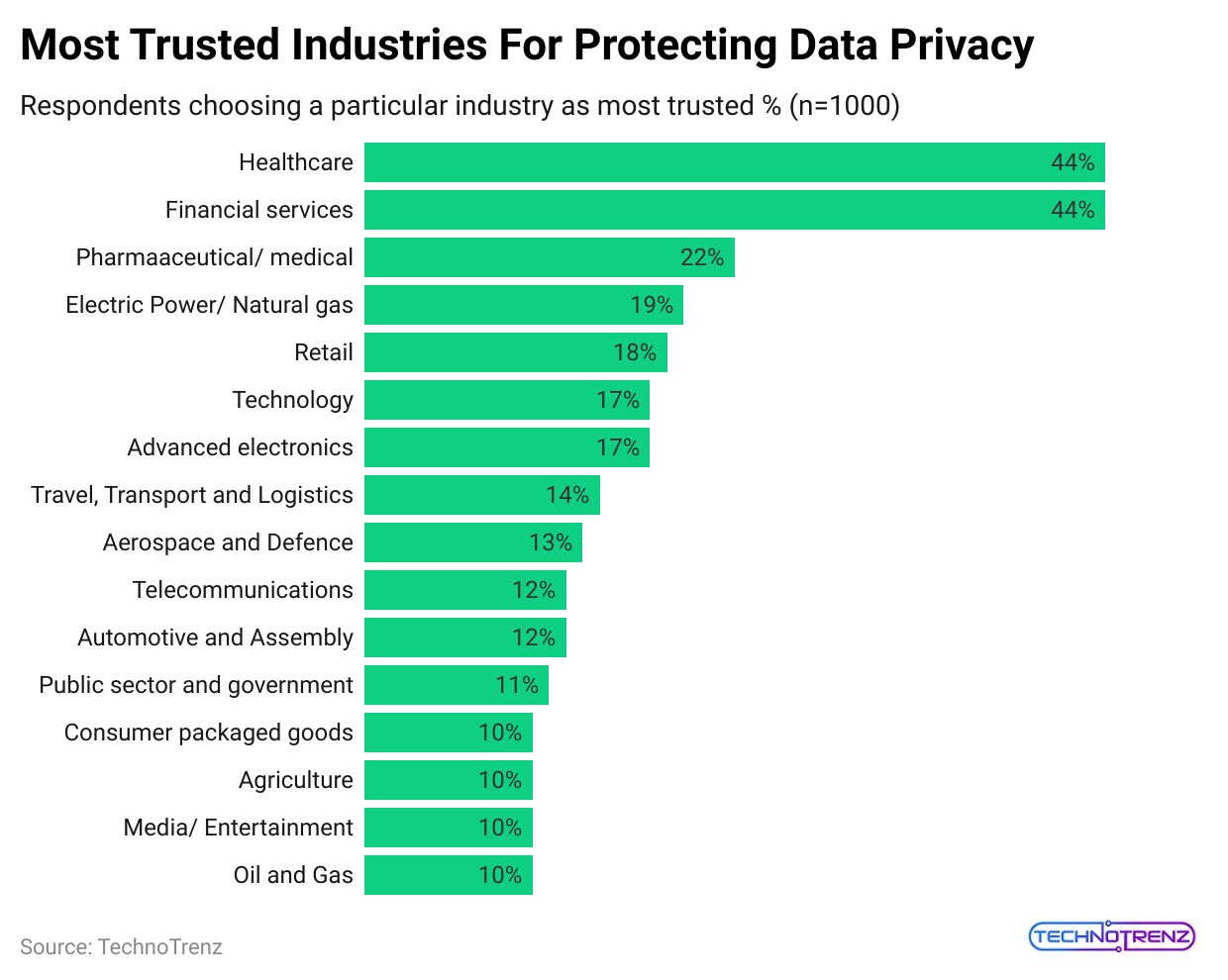 (Reference: secureframe.com)
(Reference: secureframe.com)
- Since 76% of consumers would not buy from a company they don’t trust with their data, it’s clear that focusing on these strategies is important.
- However, more than just having a policy is needed. Research from 2023 reveals a concerning trend: 61% of users think privacy policies don’t clearly explain how companies use their data, and 69% view these policies as just a formality.
- For long-term data privacy goals, businesses should know that 81% of professionals agree that a company’s handling of its data shows how it respects its customers.
- However, it’s important to note that user priorities sometimes match business priorities.
- For example, while 30% of businesses say compliance is their top priority for building trust, 39% of consumers think transparency about how their data is used is more important.
- While following privacy laws is crucial, earning trust goes beyond just compliance.
- Consumers now see legal adherence as a basic expectation, and transparency is the key factor that sets companies apart.
- To build and maintain trust, businesses must be open and clear about their data practices and demonstrate their commitment to protecting customer information.
- Transparent policies create a positive image and boost consumer confidence in how the organization handles sensitive data.
- Importantly, 96% of business respondents believe they have an ethical duty to treat data responsibly, up from 92% the previous year, indicating progress in the industry.
- Research suggests that by the end of 2024, 60% of large companies will adopt new solutions, like privacy-enhancing techniques, to protect data better while it’s in use.
Data Privacy Legislation And Compliance Statistics
- It’s predicted that 75% of the global population will have their data protected by privacy laws by the end of 2024.
- More than 160 privacy laws have been created around the world.
- Over 120 countries will have international data privacy laws in 2024.
- Online Privacy Statistics stated that around 72% of Americans think there should be more government rules about how personal data can be used.
- Additionally, 56% of registered voters in the U.S. support federal data privacy laws.
- More than 80% of U.S. voters support the measures in the American Data Privacy and Protection Act.
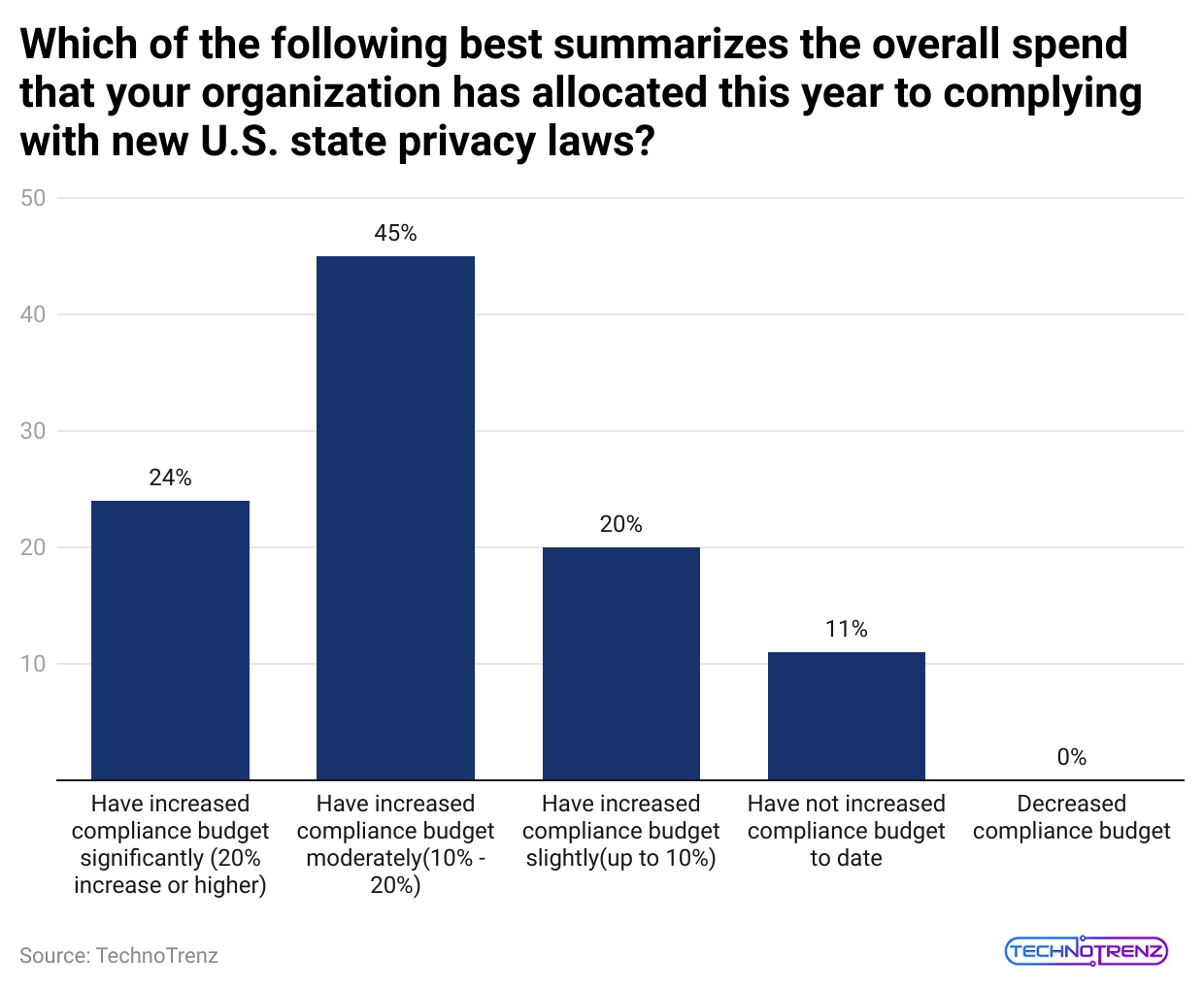 (Reference: womblebonddickinson.com)
(Reference: womblebonddickinson.com)
- The above chart shows the overall spending that the companies allocated in 2024 to comply with the new U.S. state privacy laws.
- 87% back banning the sale of data to third parties without user consent.
- Nearly 86% want companies to limit the types of user data they collect.
- 86% support stricter online privacy rules for children under 17.
- Roughly 82% want individuals to have the right to sue for damages after data breaches.
- Online Privacy Statistics stated that 50% of consumers believe governments should take the lead on data privacy initiatives, while 21% think organizations should.
- Almost 66% of consumers feel that data privacy laws have positively impacted them.
- Organizations globally strongly support privacy laws, with 80% saying that these laws have had a positive effect on them.
- The California Consumer Privacy Act (CCPA) protects over $12 billion worth of personal information each year.
- The costs to comply with the CCPA are estimated to be between $467 million and $1.64 billion from 2020 to 2030.
- Only 37% of organizations have a framework that can adapt to changing privacy laws.
- 78% of survey respondents use a framework or regulation to manage privacy in their organizations.
The most common frameworks are:
- GDPR: 53% globally, 78% in the EU
- NIST Privacy Framework: 44% globally, 61% in the U.S.
- ISO/IEC 27002:2013: 35%
- ISO/IEC 27701: 30%
- COBIT: 27%
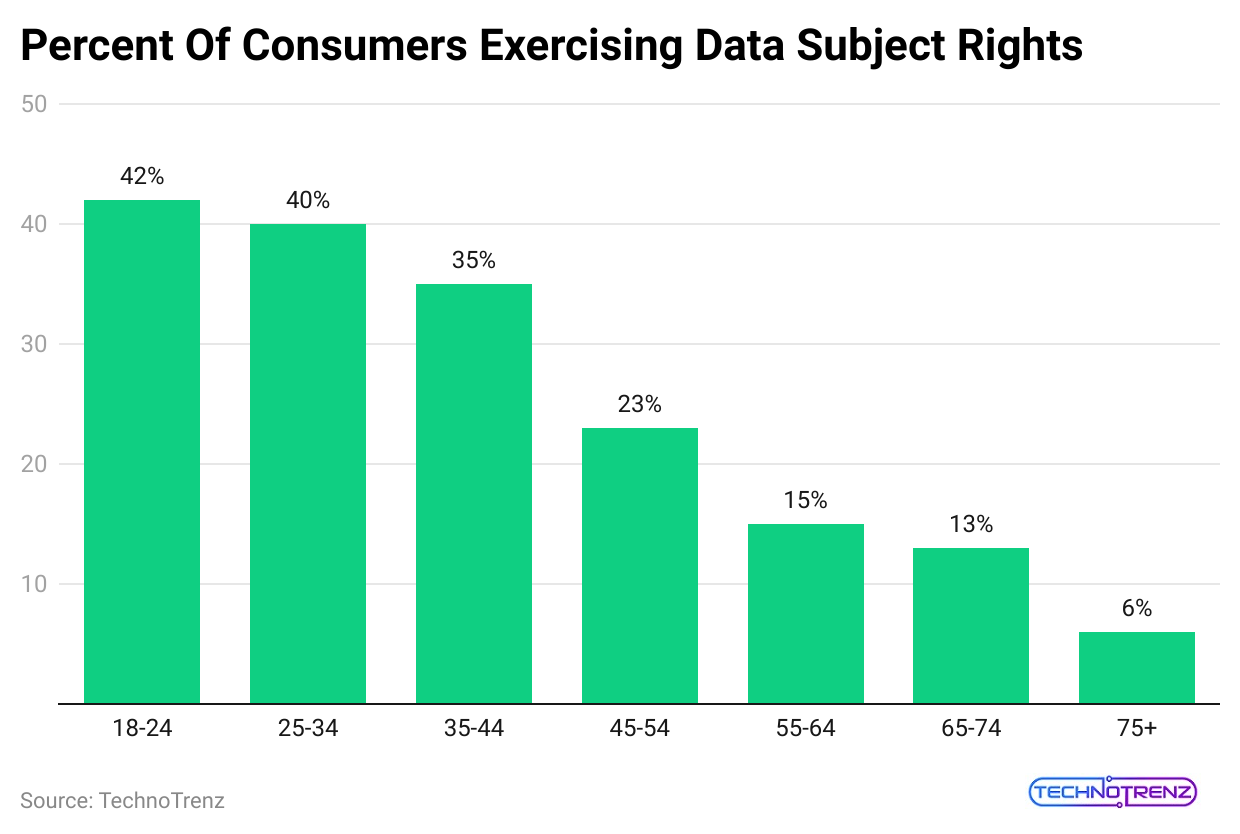 (Reference: secureframe.com)
(Reference: secureframe.com)
- 58% of privacy leaders say keeping up with changing regulations is their top priority.
- Over 96% of privacy professionals feel confident in their ability to stay informed about new privacy laws and policies.
- 21% of privacy professionals say their biggest risk is maintaining compliance across different regulatory environments with changing requirements.
- Only 20% of privacy professionals reported being completely confident in their organization’s compliance with privacy laws.
- Nearly 50% of privacy professionals are only somewhat or not confident in their organization’s ability to ensure data privacy and follow new regulations.
- Roughly 23% of technical privacy professionals say they either never meet with legal/compliance staff to discuss legal requirements or only meet when new privacy laws go into effect.
- Nearly 31% of privacy professionals noticed an increase in data subject requests over the past year.
- The number of data subject requests rose by 72% between 2021 and 2022, with access requests increasing five times and deletion requests doubling.
- Companies process 56% more deletion requests than access requests.
- Online Privacy Statistics stated that the average cost to handle a single data subject request manually is $1,524.
- Access and deletion requests can cost companies about $648,000 per year for every million identities.
- 28% of consumers have used their data subject rights, with younger consumers being the most active (Cisco).
Data Privacy And Artificial Intelligence Statistics
- As businesses start using more AI, consumers want to know how this technology will affect their data. Here are some important statistics that show the growing need for businesses to be open about AI and its impact on privacy.
- Gartner reports that 40% of companies have had a privacy breach related to AI, which shows that strong security is essential when using AI technology.
- A survey by the International Association of Privacy Professionals found that 57% of people around the world see AI’s role in collecting and processing personal data as a serious threat to their privacy.
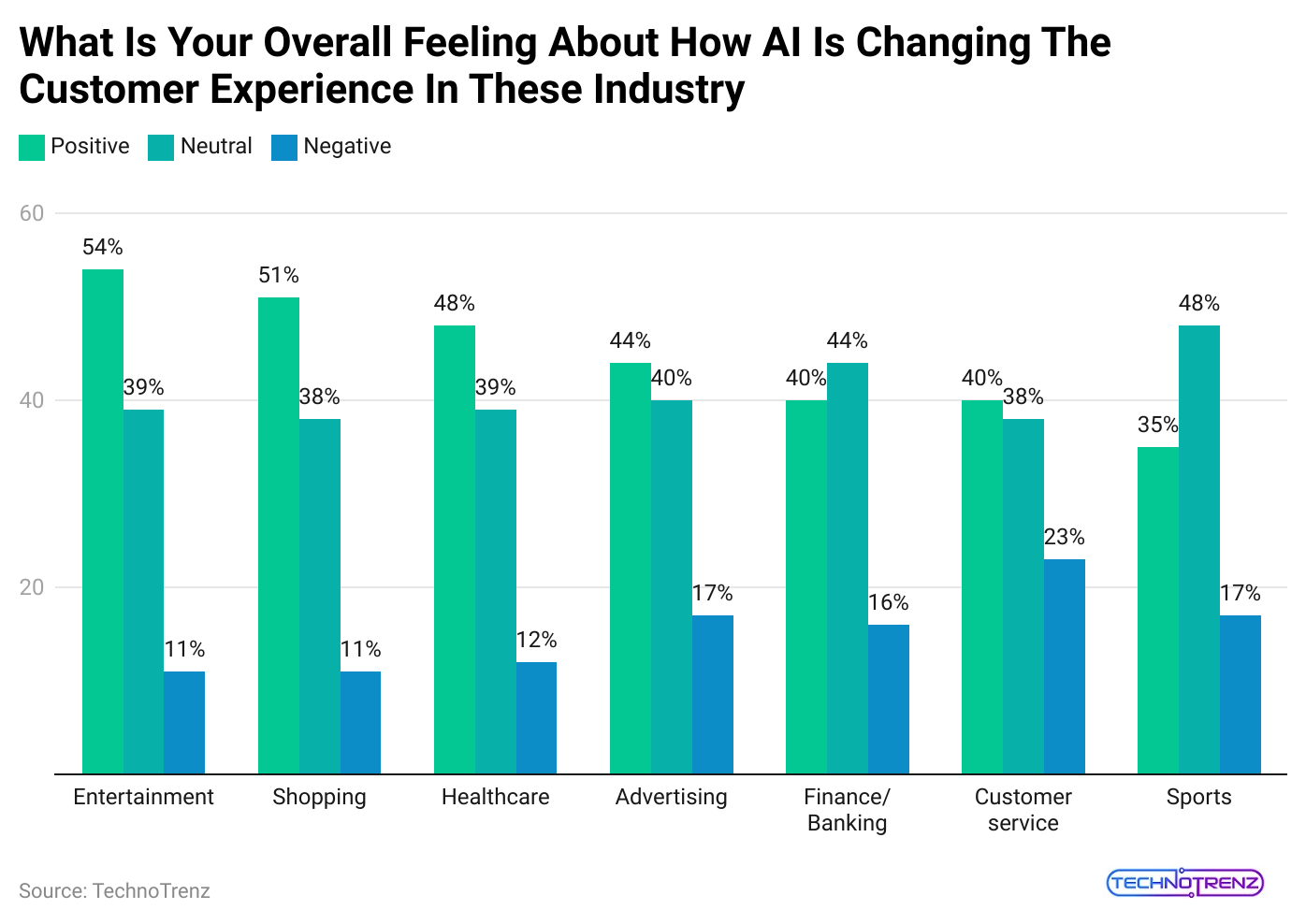 (Reference: cdp.com)
(Reference: cdp.com)
- According to the Online Privacy Statistics, 70% of U.S. adults need more confidence in companies’ ability to use AI responsibly.
- Furthermore, a Cisco study found that 91% of organizations recognize they need to do more to reassure customers about how their data is used with AI.
- This is particularly important since 48% of organizations are entering sensitive company information into Generative AI (GenAI) applications, raising privacy issues.
- Consumer worries are widespread: 60% are concerned about how businesses use AI, and 65% feel that AI has already reduced their trust in these companies.
- AI tools like ChatGPT pose significant risks, according to Online Privacy Statistics.
- Online Privacy Statistics state that 15% of employees regularly share company data with these tools, with more than a quarter of that information being sensitive.
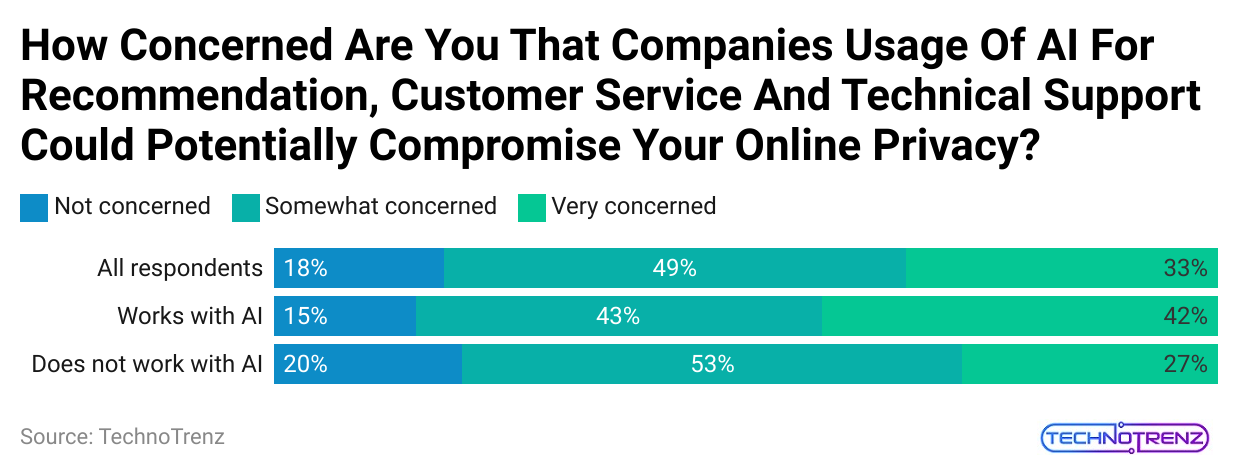 (Reference: cdp.com)
(Reference: cdp.com)
- 5% of workers post private info into GenAI tools every week.
- The types of confidential information being shared include internal business data (43%), source code (31%), and personally identifiable information (PII) (12%).
- Despite these concerns, many people believe AI can bring benefits.
- According to Redpoint Global, 73% of consumers think AI can enhance their customer experience.
- Additionally, Cisco found that 54% of users are willing to share their anonymized personal data to help improve AI products and services.
- Online Privacy Statistics highlight the urgent need for strong data privacy practices and training for employees on how to use AI safely.
- Being transparent and building consumer trust are key steps in managing the challenges of AI and data privacy.
Steps Undertaken By Global Internet Users For Online Privacy
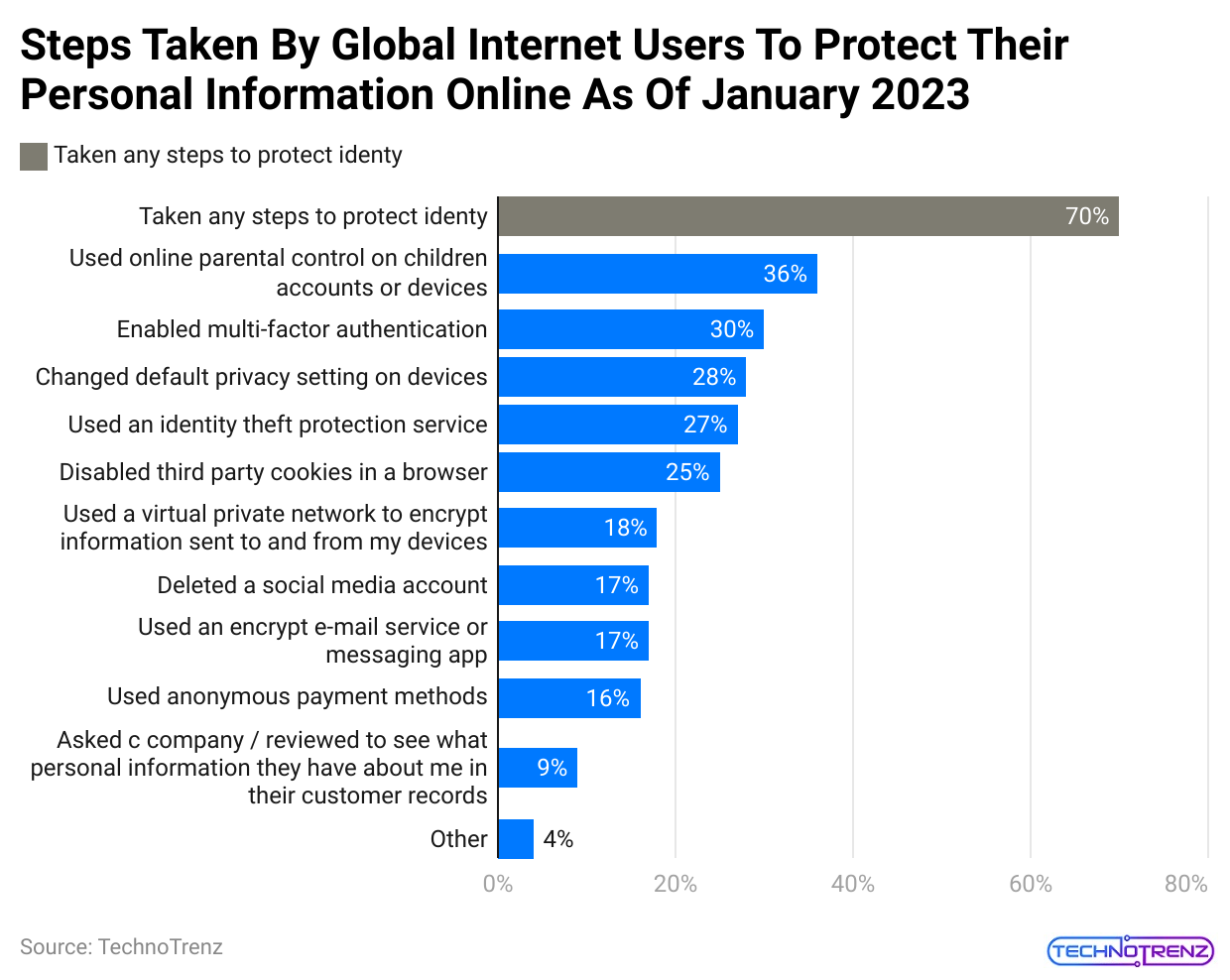 (Reference: statista.com)
(Reference: statista.com)
- A global survey done between November 2022 and January 2023 found that seven out of ten people took steps to protect their online identity.
- About 30% of respondents turned on multi-factor authentication, while 28% changed the default settings on their devices.
- However, 30% said they hadn’t done anything to secure their digital identity.
Influential And Recent Privacy Laws
#1. Europe: GDPR (General Data Protection Regulation)
- GDPR came into effect in 2018. It outlines the rights of European Union citizens regarding their data and what organizations must do when handling that data.
- GDPR quickly became a model for privacy laws in other countries.
- At least 20 countries outside the EU have created laws similar to GDPR.
- Companies worldwide must follow GDPR if they handle the personal data of EU residents. Before May 2018, Fortune 500 companies spent about $7.8 billion on compliance, with 40% spending over $10 million.
- In 2021, European data regulators issued €1.1 billion in fines for GDPR violations, which is a sevenfold increase from the previous year.
- According to Online Privacy Statistics, from July 2018 to February 2023, EU regulators issued 1,576 fines under GDPR.
- The highest average fines were in the media, telecom, and broadcasting sectors, while the most fines were given in the industry and commerce sectors.
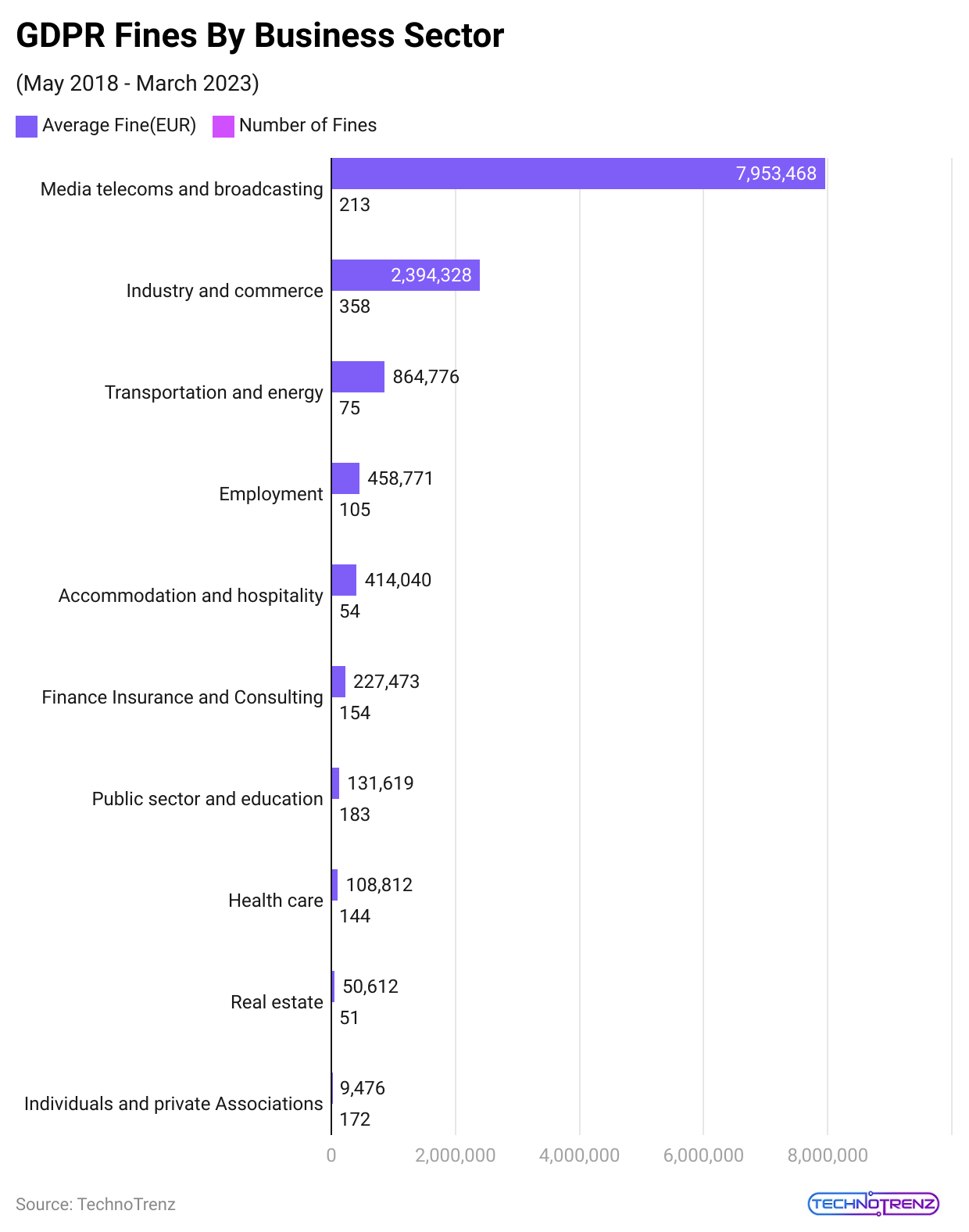 (Reference: stationx.com)
(Reference: stationx.com)
#2. India
- The start date for this law has yet to be announced. While it is generally similar to the GDPR, there are some key differences.
- Fines: With GDPR, fines are partly based on the organization’s revenue. However, under DPDP, penalties are not linked to revenue. Maximum fines for specific violations range from about $6 million (₹50 crore) to $30 million (₹250 crore) for each breach.
- Compensation: Unlike GDPR, DPDP does not allow individuals to claim compensation from organizations for data protection violations.
- Duties of Data Subjects**: DPDP requires individuals to provide accurate information, with penalties for non-compliance (GDPR does not have this requirement). Individuals can also be fined for making false complaints against organizations.
#3. California (CPRA: California Privacy Rights Act)
- The new California Privacy Rights Act (CPRA) took effect on January 1, 2023. It amends the existing California Consumer Privacy Act (CCPA) by introducing new rights for individuals.
#4. China
- China’s data protection laws are based on three main laws:
- Personal Information Protection Law (PIPL): Effective from November 1, 2021, this is China’s main law for personal data protection. It is partly based on GDPR and outlines rules about consent for data processing, cross-border data transfers, and individual rights.
- Cybersecurity Law (CSL): This law, established in 2016, aims to ensure that companies using computer networks have strong cybersecurity measures in place. It includes requirements for protecting personal information, multi-level cybersecurity measures, assessments, and inspections.
- Data Security Law (DSL): This law sets out basic requirements for data security, including data categorization, risk controls, and response plans.
Conclusion
Online privacy is a complicated issue that includes information breaches, cybersecurity threats, government spying, online tracking, and social media practices, all of which raise important concerns. People are becoming more aware of these issues, leading to more individuals using privacy tools. However, many still prioritize convenience over privacy, resulting in compromises.
Laws like GDPR and CCPA are important steps forward, but as technology changes, we need ongoing efforts to keep up with regulations. Different countries have varying privacy practices, and we may see new developments in decentralized technologies and privacy-focused AI in the future. It’s crucial to find a balance between the benefits of being connected and protecting personal data to ensure a secure and privacy-respecting online space for everyone.
Sources
FAQ.
Iceland has the strictest data privacy laws for the internet. Because of its strong privacy rules, which were implemented in 2000, Iceland is often referred to as the “Switzerland of data.”
Iceland is called the “Switzerland of data” because it has very strict privacy laws. The Data Protection Act of 2000 says that data must be collected for specific reasons and only after the person has clearly agreed and been informed.

Saisuman is a professional content writer specializing in health, law, and space-related articles. Her experience includes designing featured articles for websites and newsletters, as well as conducting detailed research for medical professionals and researchers. Passionate about languages since childhood, Saisuman can read, write, and speak in five different languages. Her love for languages and reading inspired her to pursue a career in writing. Saisuman holds a Master's in Business Administration with a focus on Human Resources and has worked in a Human Resources firm for a year. She was previously associated with a French international company. In addition to writing, Saisuman enjoys traveling and singing classical songs in her leisure time.



